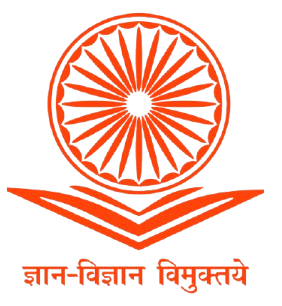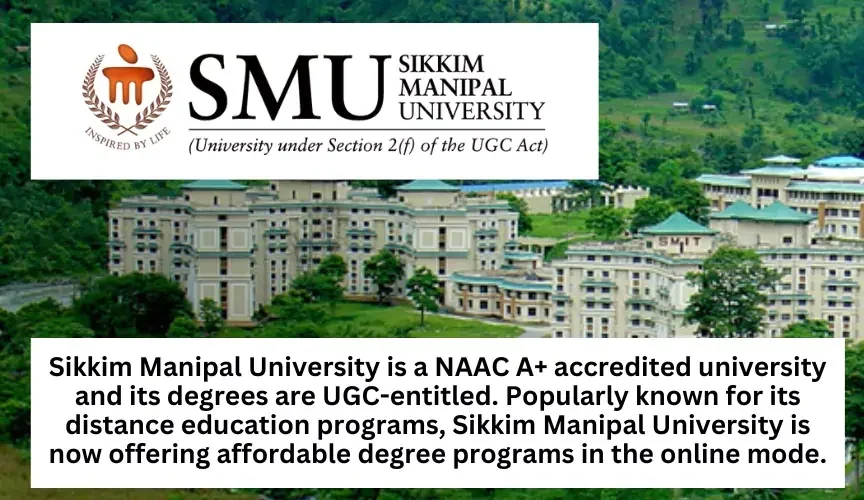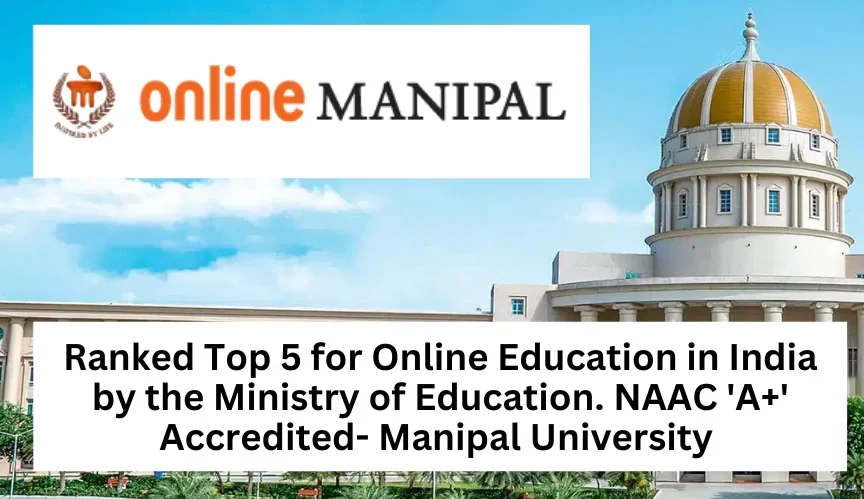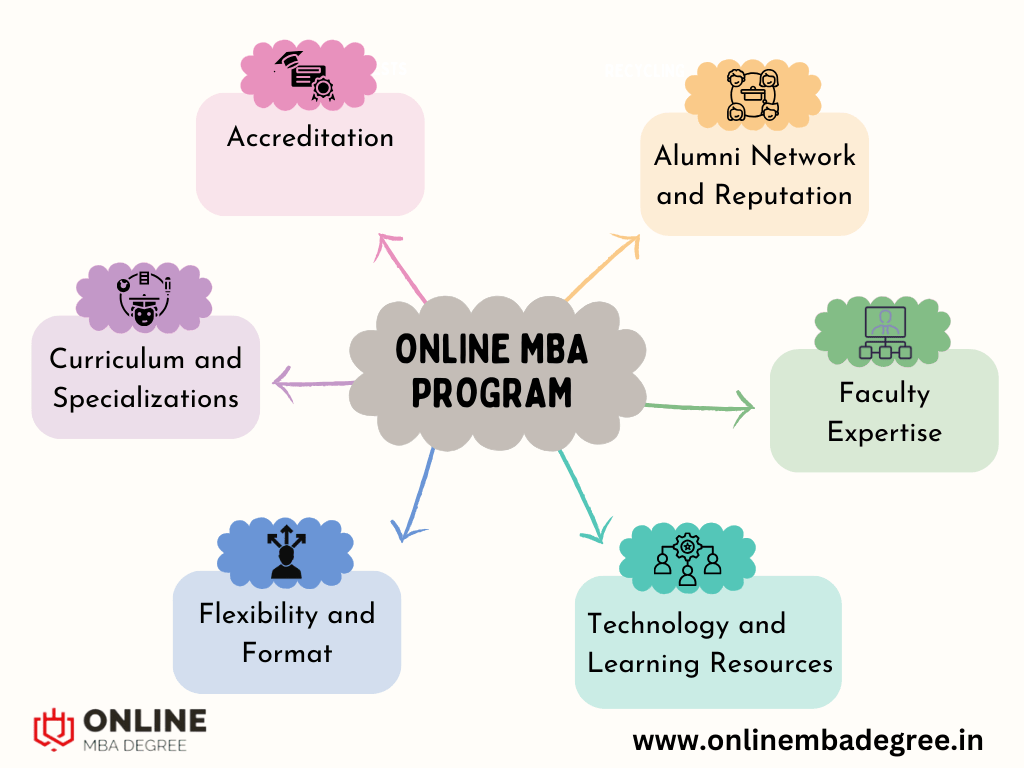UGC Announces Admissions in Two Academic Session 1st Batch(July/August) . 2nd Batch (January/February)
Get an Online MBA Degree by NAAC A++ Accredited Universities
Globally Recognised Universities
As per Govt. Online MBA Degree are Now Equivalent to Regular Degrees
Hurry Up! Admission Closing Soon. Only Few Seats Left. Enroll Now!
ODL & Online MBA Programs are Equivalent to Regular (Campus) Programs - To know more
UGC Announces Admissions in Two Academic Session 1st Batch(July/August) . 2nd Batch (January/February)
Get an Online MBA Degree by NAAC A++ Accredited Universities
Globally Recognised Universities
As per Govt. Online MBA Degree are Now Equivalent to Regular Degrees
Hurry Up! Admission Closing Soon. Only Few Seats Left. Enroll Now!
ODL & Online MBA Programs are Equivalent to Regular (Campus) Programs - To know more

Top NIRF Ranking India: Online MBA Central Universities | Top Colleges
With the rise of digital education, Online MBA programs have gained immense popularity in India. These programs offer flexibility, affordability, and access to quality education without the constraints of location. As the demand for online management courses grows, the National Institutional Ranking Framework (NIRF)—a prestigious ranking system by the Ministry of Education, Government of India—plays a crucial role in evaluating and ranking institutions offering Online MBA programs.
The NIRF Ranking provides prospective students with valuable insights into academic quality, faculty credentials, industry collaborations, placement opportunities, research output, and overall institutional reputation. With more business schools adapting to the online learning model, the NIRF rankings help students make informed decisions by identifying the top-performing institutions in India.
This article delves into the significance of the NIRF Ranking for Online MBA, the key parameters considered, and a list of the top-ranked universities offering Online MBA Course in India. Whether you’re a working professional seeking career advancement or an aspiring manager looking for a flexible learning option, understanding these rankings can help you choose the best Online MBA program suited to your goals.
NIRF Ranking India Methodology
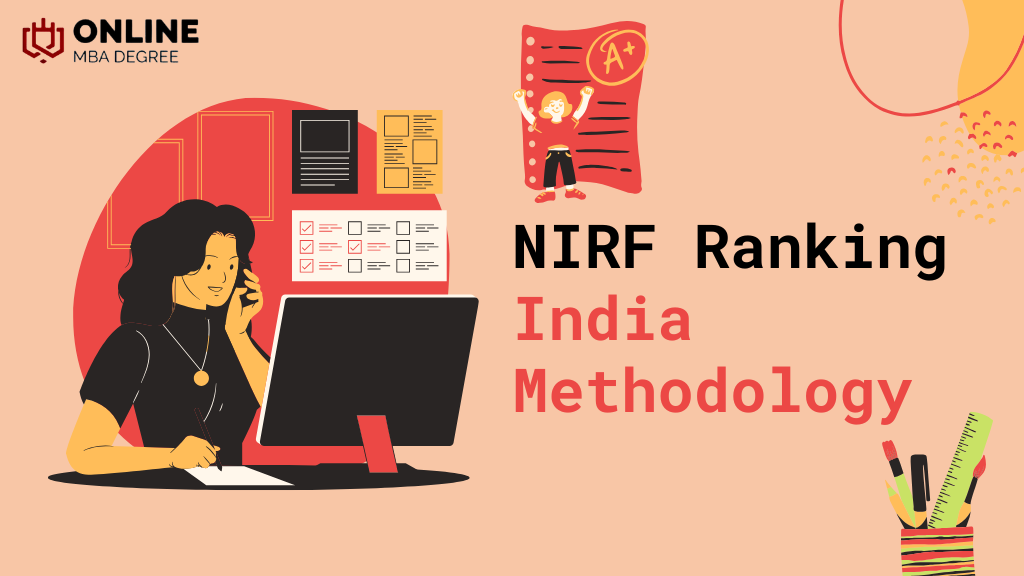
1. Teaching, Learning & Resources (TLR)
This parameter assesses the quality of education, faculty expertise, learning resources, and infrastructure available to students. The key factors include:
- Faculty-Student Ratio (FSR): The availability of qualified faculty members in proportion to the number of students.
- Faculty Qualification & Experience: The proportion of faculty with PhDs, industry experience, and research credentials.
- Infrastructure & Learning Resources: Availability of modern classrooms, libraries, digital learning tools, case studies, and simulation labs.
- Student-Faculty Engagement: Programs like mentorship, live projects, industry interactions, and experiential learning opportunities.
A higher TLR score indicates an institute’s strong academic foundation and well-equipped learning environment.
2. Research & Professional Practice (RP)
This parameter evaluates an institution’s contribution to research, publications, patents, and corporate consultancy projects. It includes:
- Number of Research Papers & Citations: The volume and quality of research publications in top-tier journals.
- Patents & Innovations: The number of patents filed and research innovations contributing to the industry.
- Industry Collaboration: Partnerships with companies for research projects, consulting, and executive training.
- Entrepreneurial & Start-up Support: Incubation centers, funding for student startups, and business development initiatives.
Institutions with high RP scores play a crucial role in shaping industry practices and contributing to academic advancements in management education.
3. Graduation Outcomes (GO)
This parameter measures student success in terms of placements, entrepreneurship, and higher studies. Key indicators include:
- Placement Percentage & Salary Packages: The number of students placed and their average salary packages.
- Higher Education & PhD Enrollments: The number of graduates pursuing further education, such as doctoral programs or specialized certifications.
- Entrepreneurship & Startups: The number of students launching their own ventures post-MBA.
- Alumni Success & Corporate Leadership: Influence of alumni in top leadership positions across industries.
A strong GO score reflects an institution’s ability to produce industry-ready graduates with competitive career prospects.
4. Outreach & Inclusivity (OI)
This parameter evaluates how accessible and inclusive an institution is to students from diverse backgrounds. It includes:
- Regional & Gender Diversity: The percentage of students from different states, regions, and genders.
- Social & Economic Inclusivity: The representation of students from economically weaker sections and marginalized communities.
- Scholarships & Financial Assistance: Availability of need-based scholarships, government grants, and financial aid.
- Support for Differently-Abled Students: Infrastructure and resources for students with disabilities.
A high OI score indicates an institution’s commitment to equal opportunities and diverse representation in management education.
5. Perception (PR)
This parameter assesses the reputation and credibility of an institution among its peers, employers, and academia. It is determined by:
- Reputation Among Employers: The preference of recruiters and corporations for hiring graduates from the institution.
- Academic Perception: Recognition and ranking by academic institutions, faculty, and researchers.
- Industry & Alumni Network Influence: The presence of alumni in leadership positions and their impact on the corporate world.
- Global & National Recognition: Collaboration with international universities, industry awards, and media perception.
India Top NIRF Ranking 2025: Top Central Universities for Online MBA
Central universities in India are known for their academic excellence and government support. The top-ranking central universities in 2025 include:
| Institute ID | Name | Score |
| IR-M-S-8890 | IIM Ahmedabad | 83.32 |
| IR-M-S-132 | XLRI – Xavier School of Management | 68.13 |
| IR-M-I-1170 | Management Development Institute | 66.85 |
| IR-M-C-19343 | Symbiosis Institute of Business Management | 65.13 |
| IR-M-N-10 | SVKM`s Narsee Monjee Institute of Management Studies | 60.96 |
| IR-M-U-0436 | Amrita Vishwa Vidyapeetham | 57.40 |
| IR-M-U-0497 | Amity University | 57.23 |
| IR-M-N-16 | Great Lakes Institute of Management | 56.15 |
| IR-M-U-0747 | Chandigarh University | 55.71 |
| IR-M-U-0379 | Lovely Professional University | 55.49 |
| IR-M-U-0025 | National Institute of Technology Warangal | 42.82 |
| IR-M-U-0320 | Indian Institute of Management Tiruchirappalli | 57.67 |
| IR-M-U-0356 | Nirma University | 55.00 |
| IR-M-U-0378 | K L Deemed to be University | 53.00 |
1. IIM Ahmedabad
- NIRF Rank: 1
- Course: Online MBA
- Duration: 2 years
- Eligibility:
- Minimum 3 years of full-time work experience after post-graduation.
- Must be at least 24 years old.
- UG degree in any discipline with at least 50% marks.
- Admission via IIMA Admission Test (IAT) / CAT / GMAT / GRE.
- Specializations: General Management
- Fees: INR 20,00,000
- Worth It?: Highly reputed, best for experienced professionals.
2. XLRI – Xavier School of Management
- NIRF Rank: 9
- Course: Online PGDM (MBA Equivalent)
- Duration: 2 years
- Eligibility:
- Bachelor’s degree with at least 50% marks.
- Minimum 2 years of work experience.
- Specializations: Finance, HR, Marketing, Operations, Business Analytics
- Fees: INR 13,90,000 (Payable in 6 installments)
- Worth It?: Top accreditation (AACSB, AMBA), good for working professionals.
3. Management Development Institute (MDI)
- NIRF Rank: 11
- Course: Online PGDM (MBA Equivalent)
- Duration: 2 years
- Eligibility:
- Bachelor’s degree (3 years) with at least 50% marks.
- 50% marks in 10th & 12th.
- Minimum 2 years of work experience.
- Specializations: Finance, Marketing, HR, Operations, Analytics
- Fees: INR 8,95,000
- Worth It?: Strong industry connections, good faculty.
4. Symbiosis Institute of Business Management
- NIRF Rank: 17
- Course: Online MBA
- Duration: 2 years
- Eligibility:
- Bachelor’s degree with at least 50% marks (45% for SC/ST/OBC/PwD).
- Specializations: Finance, Marketing, HR, Operations, International Business
- Fees: INR 1,50,000
- Worth It?: Affordable and well-recognized.
5. NMIMS (Narsee Monjee Institute of Management Studies)
- NIRF Rank: 21
- Course: Online MBA
- Duration: 2 years
- Eligibility:
- Bachelor’s degree with at least 50% marks (5% relaxation for reserved categories).
- Specializations: Marketing, HR, Finance, Operations, Business Analytics
- Fees: INR 1,05,000 per year
- Worth It?: Reputed private university, good for working professionals.
6. Amrita Vishwa Vidyapeetham
- NIRF Rank: 28
- Course: Online MBA
- Duration: 2 years
- Eligibility:
- Bachelor’s degree with at least 50% marks.
- Final-year students can apply.
- Specializations: Finance, Marketing, HR, Operations, General Management
- Fees: INR 1,70,000
- Worth It?: AICTE-approved, UGC-accredited, affordable.
7. Amity University
- NIRF Rank: 29
- Course: Online MBA
- Duration: 2 years
- Eligibility:
- Bachelor’s degree from any recognized university.
- International students can apply.
- Specializations: Marketing, HR, Finance, International Business, Digital Marketing
- Fees: INR 1,99,000
- Worth It?: UGC-approved, globally recognized faculty.
8. Great Lakes Institute of Management
- NIRF Rank: 31
- Course: Online PGDM (MBA Equivalent)
- Duration: 2 years
- Eligibility:
- Bachelor’s degree with at least 50% marks (45% for SC/ST/OBC students).
- Specializations: Finance, Marketing, HR, Operations, Data Science
- Fees: INR 8,00,000
- Worth It?: Industry-aligned curriculum, great for working professionals.
9. Chandigarh University
- NIRF Rank: 36
- Course: Online MBA
- Duration: 2 years
- Eligibility:
- Bachelor’s degree with at least 50% marks.
- Specializations: HR, Marketing, Finance, IT, Business Analytics
- Fees: INR 1,50,000
- Worth It?: Flexible learning, EMI options available.
10. Lovely Professional University (LPU)
- NIRF Rank: 38
- Course: Online MBA
- Duration: 2 years
- Eligibility:
- Bachelor’s degree with at least 50% marks.
- Specializations: Finance, HR, Marketing, International Business
- Fees: INR 1,31,840 (INR 32,960 per semester)
- Worth It?: Good ROI, affordable.
FAQs Regarding Top NIRF Ranking India
How is the NIRF ranking conducted?
The Ministry of Education, through expert committees, evaluates institutions based on various performance indicators and assigns ranks accordingly.
Do NIRF rankings impact college admissions?
While NIRF Ranking do not directly influence admissions, higher-ranked institutions often attract more applicants due to their academic reputation.
What are the key parameters used in NIRF rankings?
NIRF ranks institutions based on the following five key parameters:
- Teaching, Learning & Resources (TLR) – Quality of faculty, student-faculty ratio, infrastructure, and learning resources.
- Research & Professional Practice (RP) – Research output, patents, industry collaborations, and publications.
- Graduation Outcomes (GO) – Student placements, higher studies, and entrepreneurship success.
- Outreach & Inclusivity (OI) – Diversity, gender representation, scholarships, and accessibility for disadvantaged groups.
- Perception (PR) – Reputation among employers, academicians, and alumni.
Are private colleges included in NIRF rankings?
Yes, private colleges and universities are evaluated and ranked under respective categories.
How often are NIRF rankings updated?
NIRF rankings are released annually by the Ministry of Education.
Conclusion
NIRF continues to play a crucial role in shaping India’s higher education landscape by providing transparent and data-driven rankings. Students, academicians, and institutions rely on these rankings to assess the quality of education in India. For detailed rankings and updates, visit the official NIRF website.
GET FREE COUNSELING

